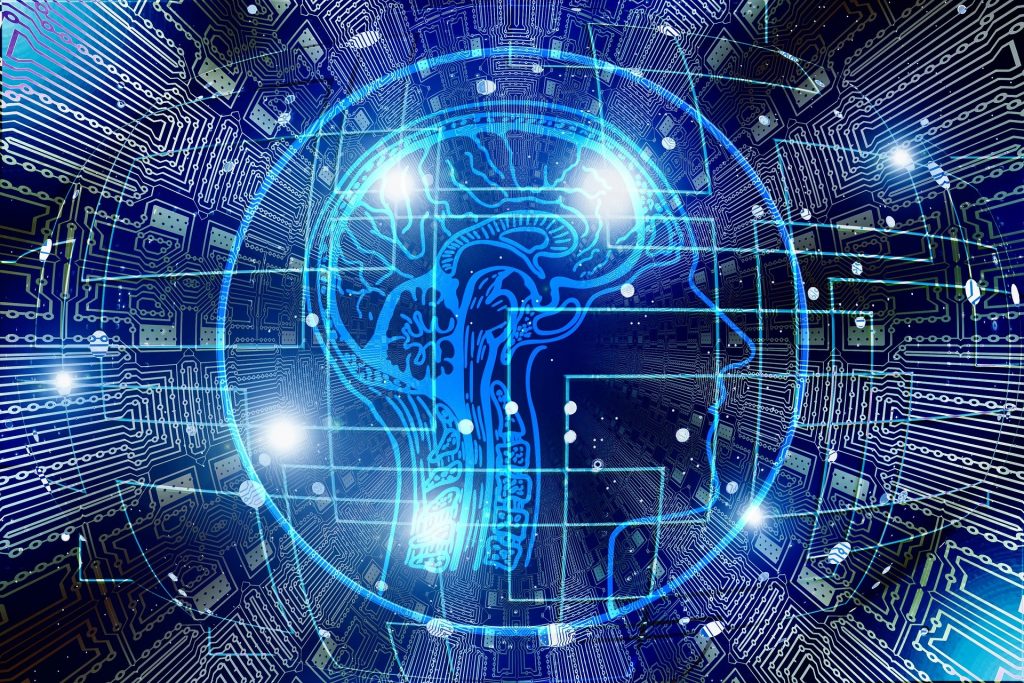
7 Potential Benefits And Risks Of Artificial Intelligence In Healthcare
Over the next few years, artificial intelligence (AI) will gradually become more integral to the medical sector. While the healthcare industry is no stranger to ground-breaking and potentially lifesaving advancements in technology, AI-based technologies offer an impressive array of applications. From automating the most trivial tasks to detecting errors, the benefits of artificial intelligence in the healthcare industry have been undeniable. Unfortunately, these benefits come with potential risks.
The Benefits Of AI In The Medical Sector
Despite being in its infancy, the advantages of AI-based technologies in the healthcare industry are already impressive. Numerous clinical settings and healthcare practitioners are already taking advantage of AI systems to enhance patient care.
Improve Patient Diagnosis And Treatment
The ability to improve patient diagnosis and care is arguably the biggest allure of artificial intelligence in the medical sector. Thanks to artificial intelligence, many physicians are diagnosing patients with greater accuracy at a faster rate.
Due to the capabilities of neural networks and machine learning, AI can analyze an immense amount of data and research findings instantaneously. Medical professionals can then use these findings to provide a more accurate diagnosis and more effective treatment. Moreover, AI-based medical systems are able to detect some illnesses early. Early detection allows for earlier treatment, which can be potentially lifesaving.
Greater Efficiency For Medical Settings
With the support of artificial intelligence, healthcare practitioners can practice medicine more efficiently.
For example, AI medical pre-screening is capable of answering common questions from patients and address any nonemergent issues. “Artificial intelligence not only saves the patient from an unnecessary and costly session with a physician, but it enables healthcare professionals to focus on patients in urgent need of care,” explains James Conway, a business blogger at Write my X and 1 Day 2 write. “AI could essentially optimize healthcare.”
The numerous applications of AI-based systems can drastically reduce the work burden on healthcare professionals and allow them to provide higher quality patient care to those in need.
Reduce The Cost Of Healthcare
Due to machine learning’s ability to access and analyze data on a patient’s detailed medical history, healthcare professionals are better equipped to identify patients at risk of a potential illness. In addition to possibly saving that patient’s life, AI could save them from expensive procedures, medicine, and other treatments. Several clinical settings are already employing AI to prevent chronic diseases such as heart disease and diabetes.
The Risks Of AI In The Healthcare Industry
While AI offers many advantages for practitioners and patients alike, there are some potential dangers to relying on this technology.
Regulation And Liability
As more healthcare professionals turn to AI to support them with patient care, liability becomes blurry. “In the event of an incorrect diagnosis or treatment suggested by AI, there’s the question of whether the physician or AI developer should be held more responsible,” warns Ida Hall, a technical writer at Origin Writings and Brit Student.
It’s imperative that medical practitioners avoid becoming overly reliant on AI-based technologies. Their medical training and knowledge must be the ultimate judge regardless of AI’s recommendations.
Patient-Physician Relationship
Although patients typically trust their doctors and other healthcare professionals to have their safety and best interest at heart, some are more reluctant to trust artificial intelligence. As a result, the introduction of AI to patient-facing systems could be harmful for the patient-physician relationship. Patients may be more mistrustful of a diagnosis from an AI and clinical practitioners who employ AI to help with their care.
Data Protection
A patient’s medical history is an incredibly sensitive matter. Since AI enjoys unrestricted access to vast amounts of medical data, concerns about patient privacy must be addressed. Medical AI developers must be regulated to ensure the collection and sharing of patient data is as ethical and confidential as possible.
Job Security
Though AI currently fulfills a supporting role to human healthcare professionals, the technology is still in its early stages. Some medical practitioners, such as radiologists, have raised concerns over the future of their career.
Conclusion
As the medical industry begins to embrace the various applications of AI, the potential for better and faster patient care will revolutionize healthcare. As long as healthcare practitioners and medical AI developers handle this technology with the utmost care, artificial intelligence can continue to play a beneficial role in medicine.
George J. Newton is a tech content specialist at Write my essay and PhD kingdom. He has been married for ten years, perfecting the art of the apology throughout. He writes articles on the latest news and innovations in tech for Next Coursework.
